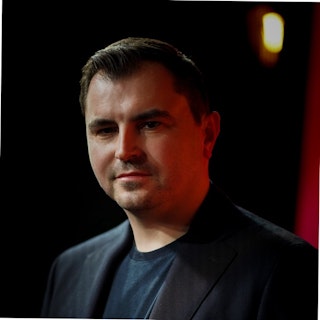How the UK’s sports marketers are preparing for a contentious Russia World Cup
From Table Mountain and vuvuzelas to Christ the Redeemer and the Copacabana, advertising campaigns for the last two World Cups have been rich in local flavour. But as tensions between Russia and the west mount, expect brands to stick strictly to the football this time around.

Tensions between UK and Russia are in marketers' thoughts ahead of this summer's World Cup
That’s the message from UK sports marketers preparing for the summer’s Russia World Cup amid calls for England to boycott the tournament following the Salisbury poisoning two weeks ago and the ensuing diplomatic fallout.
“With most of the brands we work with if they’re involved in a World Cup, an Olympics or something like that you go big and go early because once the action starts that’s all anyone cares about,” says John Parker, board director at M&C Saatchi Sport & Entertainment.
“Usually that early aspect is ‘heroing’ location. So for the World Cup in South Africa everyone was using the iconography of vuvuzelas and townships and this kind of stuff. This time [brands] are just going to focus more on the purity of the game and the stars rather than pulling out specific iconography. It would be a majorly risky move to try and align yourself with all that’s good with Russia because there’s so many counter arguments to that.”
It’s not just official sponsors who will find that this World Cup presents a greater creative challenge than when Brazil hosted four years ago. Options are more limited for guerrilla marketers too.
“The iconography of Brazil leant itself so amazingly for the sponsors – green, gold, beach – but it was also really easy to ambush,” says Octagon head Joel Seymour-Hyde. “You had loads of brands who’d just chuck a Rio beach on a packet of crisps by way of an ambush programme. For Russia, even an ambush becomes a little bit trickier because how do you celebrate Russia in your ambush marketing?”
Fifa, world football’s governing body and World Cup organiser, is famously fastidious about policing its intellectual property and shutting down ambush marketing attempts. A section on its website dedicated to ‘brand protection’ says: “Ambush marketers try to take advantage of the goodwill and positive image generated by the Fifa World Cup without contributing to its organisation … Fifa is obliged to act when non-affiliated entities do not respect Fifa’s intellectual property and conduct activities that commercially associate with the Fifa World Cup.”
Despite that warning, and notwithstanding the Russia row, Seymour-Hyde believes it is still “reasonably easy” for a brand to ambush a World Cup. “Do a smaller sponsorship,” he says. “It’s incredibly hard to police individual player and team endorsement deals.”
One fruitful option, he suggests, would be to sponsor an underdog like Iceland, as its supermarket namesake did at Euro 2016. “It doesn’t cost a lot of money to sponsor Iceland compared to the World Cup so you can get a lot of bang for your buck doing that versus trying to go fully official. Once you have some rights you can get away with a whole lot more than when you have no rights.”
Simon Dent, founder of Dark Horses, an agency which has previously worked with marketing provocateurs like Paddy Power, says the art of ambushing the tournament lies in readiness for real-time marketing around each match rather than trying to leverage the tournament as a whole.
“With the more social media channels we have it’s a lot easier,” he says. “By stepping back and seeing what you can do in the 70 games, I don’t think there’s a need to ambush the event.”
That’s the approach Snickers took in 2010 when it quickly capitalised on Luis Suarez biting an opponent as part of its 'You're not you when you're hungry' marketing, and it’s the kind of tactic we’re likely to see again from non-sponsors such as Paddy Power who will be willing to push the envelope much further than official partners.
“When you ask about brands making a statement around the World Cup an official Fifa sponsor is never going to do anything too risky because they’ve spent millions on sponsorship and they don’t want to get their knuckles rapped,” says Parker. “But if you’re a challenger brand…”
Parker, Seymour-Hyde and Dent were speaking as part of a panel at The Drum & Sun Arms, a pop-up pub open for the duration of Advertising Week Europe. More info here.

